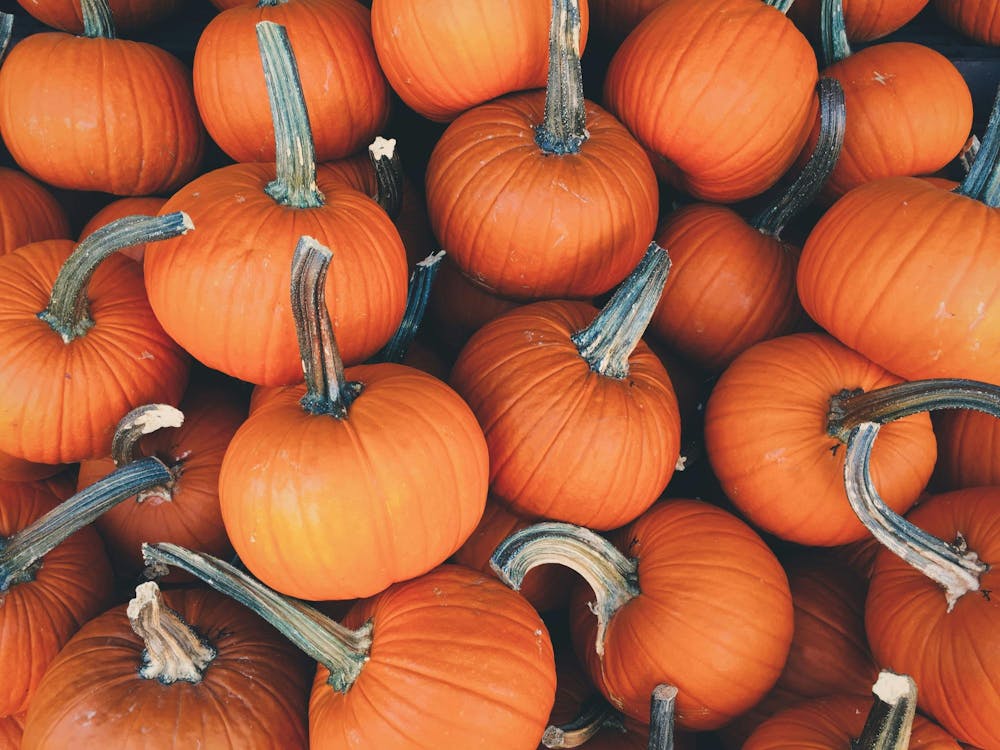Since I can remember, fall has been my favorite season. There is something magical and comforting in the soft and vibrant colors of the trees and the crispness of the cool air. From the crunch of fallen leaves to the sweet sting of the breeze on my face to the signature tastes of pumpkin, cinnamon and spices, fall is a wake-up call for my senses — it makes me feel more alive.
Fall is football weekends, cozy sweaters, a transition to hot coffees, Halloween decorations and autumn playlists with the overture of new-semester excitement. However, this particular fall has been different. The usual comforts of the season have been drowned out by one thing: the presidential election.
Whether I am reading articles carefully curated and dropped into my inbox by my dad, swiping through political posts on social media, deleting countless spam texts from my messages (as a registered Pennsylvania voter, they’ve been especially overwhelming and seemingly unending) or just discussing the election with friends and family, it is all I can seem to hear, read, talk or think about.
As a 20-year-old this was the first time I voted in a presidential election, so maybe this is the norm and I am just unfamiliar with the all-encompassing democratic process. But talking to my parents and even reflecting on my memories of past election cycles, I can tell that something is different this year.
This election is being framed as “the most important of our lives.” Players on both sides of the aisle have emphasized its all-or-nothing, make-or-break nature, most likely with the intention of promoting voter turnout and engagement.
Anytime I feel stressed about the future, whether it be a question of life post-grad or an upcoming exam week, my mom tells me to “not borrow worries from the future.” It's a reminder to remain in the here and now which usually recenters my thinking and allows me to focus on what is right in front of me — the things that I can immediately control.
Unfortunately, this good advice feels obsolete right now. The existential, inescapable stress I feel in anticipation of this upcoming election is based solely on borrowed worries about the future and, no matter which side you take, this feeling seems like common ground — a rarity nowadays, I know.
It’s tempting to wonder how we got to this point — when did we start associating with a political party more than our country? When did demonization and hate start to infiltrate the highest office in our nation and trickle down to infect our communities and dinner tables? Was January 6th the axe that split our nation in two or was that day the culmination of something that had been building for years before? When did we forget Abraham Lincoln’s words that “a house divided against itself cannot stand?” Were there signs? Could we have stopped it?
No matter what your individual answers to those questions are, there is no denying the stark difference between this election season and election seasons from the past. We are a great distance away from the type of political discourse that allowed the late Senator John McCain to defend President Barack Obama from a racist attack during a 2008 Town Hall, saying “he’s a decent family man, citizen, that I just happen to have disagreements with on fundamental issues.”
These signs of mutual respect, bipartisanship and civility are lacking in the discourse surrounding the 2024 election where candidates themselves have become the ones levying racially-motivated attacks. Discussions of golf handicaps, garbage and sizes, of both crowds and Arnold Palmer, distract from the real issues that will be decided in this election. This type of immature and divisive rhetoric in an effort to score cheap political points from already loyal bases does nothing but detract from the dignity that is supposed to be embodied by the President of the United States.
It is not unimportant to ask how we got here, but those questions are already decided — they will be answered in the history books of the next generation. The questions that remain undecided, that we should all be asking, are: where do we go from here? And how can I be empowered to make an impact and make sense of this, the (potentially) most consequential election of my generation?
Voting was a start; whether you live in Pennsylvania or California, your vote matters — it is your voice and you should use it. But our impact, our rights and our responsibility as American citizens goes beyond our vote. If the leaders of our country will not commit to civility, justice, decency, lawfulness and respect then we must take it upon ourselves to remind them what it looks like.
So, read, listen, learn and read, but be aware of what you are consuming. Take active steps to stop the spread of misinformation. Read reputable sources, read across the aisle and engage others in conversation and discussion with civility not hostility.
What better place to do that than an institution of higher education like Notre Dame? This is the time and this is the place to ask questions of each other, access new ideas and engage in difficult, sometimes contentious discussions, but to do so separate from the negativity and disrespect that is endemic of politics today.
Be curious, not judgmental and be open-minded. Despite what you may have heard, it is not us versus them and it is not you versus the “enemy within.” It is just us, we the people, the one, collective people. The question of where we go from here may be uncertain but it will certainly be better if we can go there together.
Emi Kartsonas
November 3










